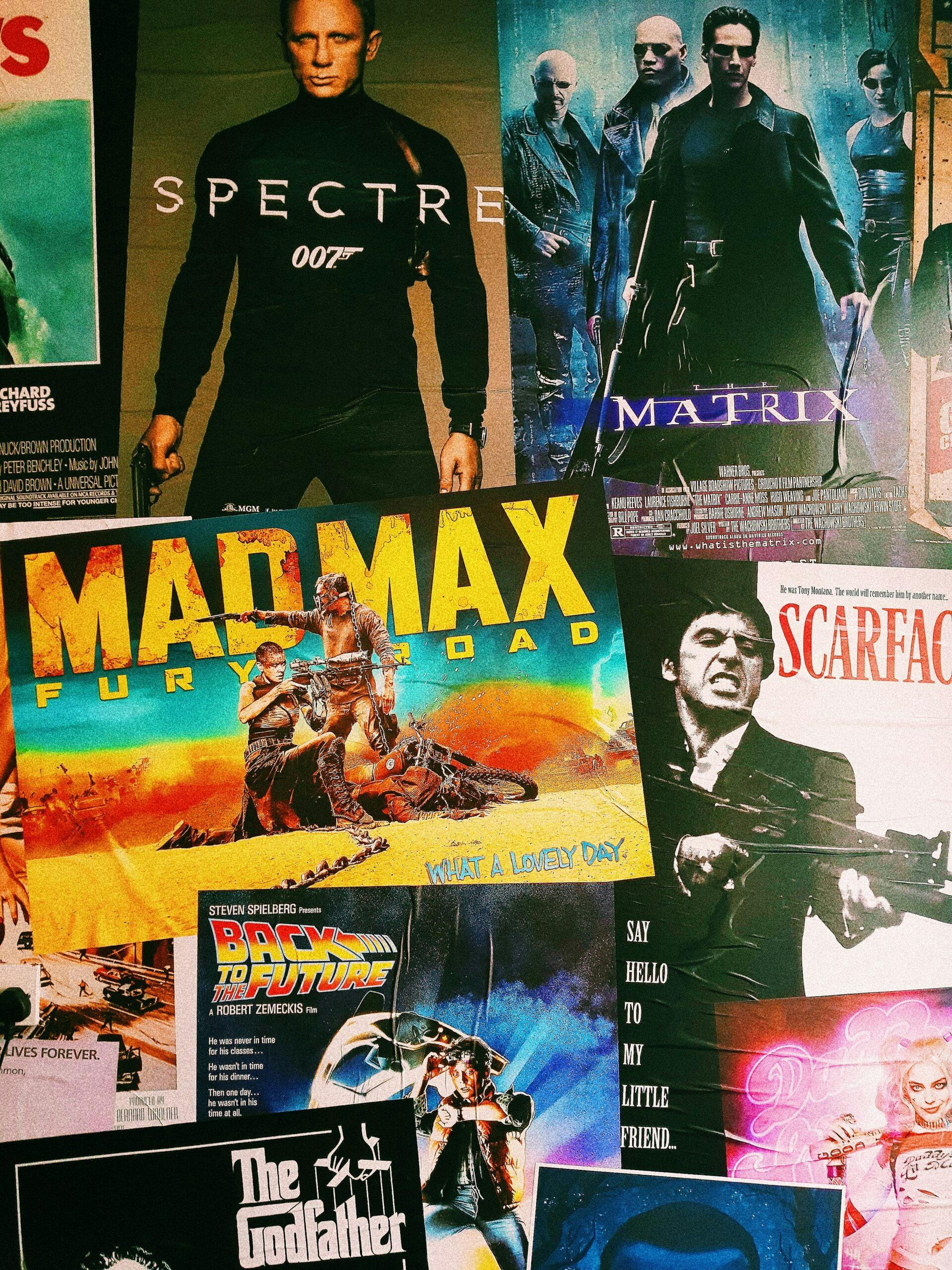Just like sleeper hit movies, there are unicorns that grow under the radar and get virtually no buzz for years, but deliver high valuations and even better multiples for investors.
2021.12.20

Khailee Ng

Photo credit: Samuel Regan Asante on Unsplash
Guess which of these movies was more financially successful: Avengers: Endgame or Get Out? The answer seems easy enough. The pinnacle of Marvel’s blockbuster superhero franchise, 2019’s Endgame was a global sensation that raked in $2.8 billion at the box office, making it the second highest grossing film of all-time. Meanwhile, horror thriller Get Out was a 2017 sleeper hit that emerged from nowhere to earn a tidy $255 million.
Few would rank Get Out in the same league as Endgame—but a closer look reveals a twist ending. Consider their budgets: Endgame had a blockbuster $356 million price tag, sporting an 8X multiple, while Get Out had a sleeper hit budget of $4.5 million to make, and returned roughly 57X. Talk about a commanding performance.
 Source: Box Office Mojo
Source: Box Office MojoSame can be seen in startup investing. Looking at the returns from 41 unicorns in 500 Global’s portfolio, those with the highest return multiples may not be the most talked about, whereas the ones that generate the most buzz tend to be those that raise the most money. Welcome to the world of Blockbuster Unicorns and Sleeper Hit Unicorns.
Let’s have a look at real examples.
When people look at a VC portfolio, they usually fixate on the usual suspects: the Ubers or Airbnbs of the world, in other words, the widely celebrated companies that reach massive valuations and feature prominently in the media and the fabric of everyday life. Aka Blockbusters. Many make the news because of the sheer size of capital they’ve raised.
Take Uber: it raised more than $24 billion prior to its 2019 IPO. Raising huge amounts of capital puts companies on the map and generates considerable media publicity, which in turn helps them raise more money. In the process, investor returns get diluted. They will still deliver outsized returns for investors who came in at the right time, but this is only one genre of success.
There are unicorns that grow under the radar and get virtually no buzz for years, but deliver high valuations and even better multiples for investors—just like a sleeper hit film. A big reason these sleeper hit companies don’t get the same level of coverage is because they didn’t need to raise as much money. Some prefer not to bring too much attention to their profitable machine.
From 500 Global’s portfolio, Australia’s Canva is a great example. Founded in 2013, it grew quickly but raised relatively little funding over its early years. Accordingly, it got little media coverage outside of the occasional TechCrunch article. When Canva reached a billion dollar valuation in 2018 it had only raised about $80 million in funding. Now, a star is born: Canva reached a $40 billion valuation this year, making it one of the world’s most valuable private software companies. That came against a total funding amount of only $572.6 million.
There are sleeper hit unicorns all around us. In 500 Global’s portfolio, there’s also Chipper Cash, which facilitates cross-border payment across Africa. It raised some $305 million before reaching a $2 billion valuation. Beyond our portfolio, we love the story of Honey, which only raised $49 million before PayPal acquired it for $4 billion.
By definition, predicting a sleeper hit film is difficult—practically no one would have foreseen the success of a Napoleon Dynamite or The Blair Witch Project—but finding sleeper hit companies isn’t as hard as you might think. You just need to know what to look for. We have studied each and every unicorn business model (903 of them at time of writing), and used valuation over capital raised over time as filters. Combining our research and experience, we suggest three elements to consider.
Low variable costs per sale. Some companies face high costs of goods sold, thin margins per sale, or high customer acquisition costs with less recurring purchases; while some startups benefit from relatively low variable costs–for instance SaaS, Middleware, and some fintech players. Canva can serve every new customer with lines of code. It doesn’t require much additional variable costs for every new customer. This isn’t about cash efficiency in one sector versus another, this boils down to the specific business model in that sector.
Lean growth culture. We believe the Indonesian e-commerce platform Bukalapak is a good role model. In 2014, it was trying to raise a small funding round when its competitor Tokopedia pulled in $100 million from investors including Softbank and Sequoia. I remember some industry stakeholders thought it could be game over for Bukalapak, but we believed in the company and not only invested in their round, but doubled down in subsequent rounds. Its founders had built an even wider online-to-offline marketplace on a shoestring budget. They knew how to survive and grow, and they did. They had only required around $478 million in funding before raising $1.5 billion in Indonesia’s largest IPO till date, at a $6 billion IPO valuation. We have also backed Southeast Asian auto-commerce company Carsome, which is one of the market leading unicorns with around 2X less capital than its competitor. In a world where it’s too easy to spend to grow, keep a lookout for those who have lean growth in their DNA.
Location. Silicon Valley might as well be the Hollywood of the tech business: big stars, bright lights and big budgets. But entrepreneurs are increasingly building great businesses in new innovation hotspots. That can come with the benefit of realizing cash efficiencies from operating outside high-cost tech hubs. In the U.S, Utah, for example, has produced sleeper hits such as 500-backed Lucid, a $3B company that raised only $170M of primary capital.
This is even more true outside of the U.S. Companies such as Canva and Bukalapak aren’t one-hit wonders; the world stage is churning out sleeper hit companies faster than even Marvel can dream up superhero origin stories. But too often they don’t get the same publicity as their Silicon Valley counterparts. We believe entire sleeper hit markets are waking up in Pakistan, Africa, the Middle East and 15 more ‘Rise of the Next’ markets we’ve identified.
500 Global made a bet on the world’s potential back in 2010, and has proved performance in places such as Turkey, Indonesia and Vietnam, which at the time seemed like contrarian bets to many. We believe founders in those markets will continue to prove critics wrong. Here’s the spoiler: like us, everyone likes a good blockbuster, but sleeper hits are always on the watchlist. Repeatedly producing them is part of our endgame.
Legal Disclaimer: The views expressed here are those of the individual 500 Global personnel, or other individuals quoted and are not the views of 500 Global or its affiliates. Certain information contained herein may have been obtained from third-party sources, including from portfolio companies of funds managed by 500 Startups Management Company, L.L.C. (“500 Global”). While taken from sources believed to be reliable, 500 Global has not independently verified such information and makes no representations or warranties as to the accuracy of the information in this post or its appropriateness for a given situation. In addition, this content may include third-party advertisements or links; 500 Global has not reviewed such advertisements and does not endorse any advertising content contained therein. This content is provided for informational purposes only, and should not be relied upon as legal, business, investment, tax or accounting advice. You should consult your own advisers as to those matters. References to any securities or digital assets are for illustrative purposes only, and do not constitute an investment recommendation, offer to sell or solicitation to purchase any investment securities, or offer to provide investment advisory services. Furthermore, this content is not directed at nor intended for use by any investors or prospective investors, and may not under any circumstances be relied upon when making a decision to invest in any fund managed by 500 Global. (An offering to invest in an 500 Global fund will be made only by the private placement memorandum, subscription agreement, and other relevant documentation of any such fund and should be read in their entirety.) Any investments or portfolio companies mentioned, referred to, or described are not representative of all investments in vehicles managed by 500 Global, and there can be no assurance that the investments will be profitable or that other investments made in the future will have similar characteristics or results. Charts and graphs provided herein are for informational purposes solely and should not be relied upon when making any investment decision. Past performance is not indicative of future results. The content speaks only as of the date indicated. Unless otherwise expressly stated, figures are based on internal estimates and have not been independently verified. Any projections, estimates, forecasts, targets, prospects, and/or opinions expressed in these materials are subject to change without notice and may differ or be contrary to opinions expressed by others. All logos and trademarks of third parties referenced herein are the logos and trademarks of their respective owners and any inclusion of such trademarks or logos does not imply or constitute any approval, endorsement or sponsorship of 500 Global by such owners. Please see Section 2 of our Terms of Use for additional important information.



